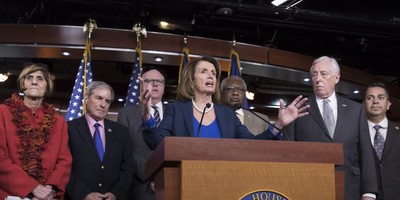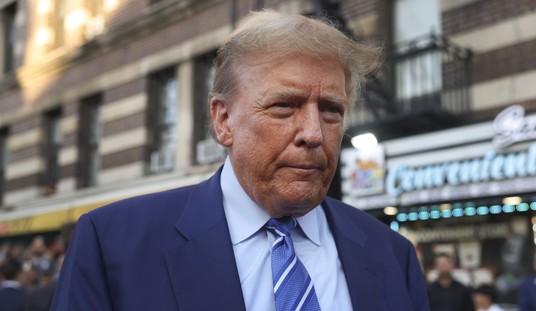WASHINGTON, D.C. -- As financial storm signals appeared the last 18 months, there were Bush officials who urged drastic reform of Fannie Mae and Freddie Mac. But, according to internal government sources, Treasury Secretary Henry Paulson objected because it would look "too political." The Republican administration kept hands off the government-backed mortgage companies that are closely tied to the Democratic establishment.
Paulson is a Republican, but as head of the Goldman Sachs investment bank, he had close ties with Democratic-dominated Fannie Mae. After prominent Democrat James A. Johnson left Fannie after eight years as chairman and CEO, he was named head of Goldman Sachs' compensation committee, helping set Paulson's abundant salary there.
That connection clearly was not enough for Paulson to consider recusing himself from dealing with the crisis threatening Fannie, Freddie and the whole American economy. He structured the bailout and was on the phone last weekend encouraging leading investment bankers to buy Freddie Mac bonds. Financial consultant Lawrence Lindsey, President George W. Bush's former national economic director, told clients Sunday, "Surely things are somewhat amiss when a country's finance minister plays bond salesman for a supposedly privately owned company."
Testifying before the Senate Banking Committee Tuesday, Paulson stressed there would be a federal purchase of assets only if necessary. But relying on investment bankers could be awkward for Paulson because of indiscreet jubilation from his old company. "This is our bailout," a senior Goldman Sachs official told a Wall Street colleague this week, suggesting the firm will be cherry-picking for mortgage bargains.
Recommended
Paulson's tardy attention to the mortgage companies is not unique. The only senior executive branch officials who expressed alarm about overextended Fannie and Freddie were Federal Reserve Chairman Alan Greenspan and Treasury Secretary Lawrence Summers, and their warnings were shrugged off.
It was worse on Capitol Hill. Former Rep. Richard Baker could not find a single House co-sponsor for his reform bill. He lost his bid to become ranking Republican on the House Financial Services Committee though he had seniority, and then retired from Congress to become a lobbyist. Republican Sen. Chuck Hagel had trouble finding other Senate supporters of Baker's bill.
Baker, Hagel and Sen. Richard Shelby, ranking Republican on the Senate Banking Committee, were rare members of committees with jurisdiction who took the issue seriously. The powerhouse Democratic overseers of the banking committees -- Rep. Barney Frank, Sen. Christopher Dodd and Sen. Chuck Schumer -- protected Fannie and Freddie.
Tuesday's hearing was more than an hour old when Hagel became the first senator to ask whether the well-paid officials and directors of the mortgage companies should be held accountable for the crisis. "I'm not looking for scapegoats," Paulson replied. The overriding mood recalled the question repeatedly posed, in a different context, by Bob Dole during his losing 1996 campaign for president: "Where's the outrage?"
Many of Paulson's non-scapegoats have traveled a familiar path from modest net worth to sudden wealth at the mortgage companies, especially Fannie Mae. Most have been Democrats, but token Republicans also have enjoyed the profitable ride. It is an old story, well described in "Crony Capitalism: American Style" by financial affairs reporter Owen Ullman in the July-August 1999 issue of The International Economy magazine. He portrayed rich "rewards" for fortunate insiders, including a $9.5 million income for Jim Johnson in 1998.
In that article, former Treasury official Peter Wallison of the American Enterprise Institute saw Fannie and Freddie posing a "prescription for financial disaster," similar to the savings-and-loan debacle a decade earlier. Wallison on Monday said, "Allowing the continued operation of the companies as private, shareholder-owned institutions, while the taxpayers are ultimately responsible for their losses, recapitulates our experience with the savings and loans less than 20 years ago."
Will Paulson follow Wallison's advice and put the mortgage companies in federal receivership at the expense of shareholders? Wall Street tycoon Hank Paulson was the secretary of the treasury that Bush long had sought and finally found on his third try. Now, grumbling has begun inside the Senate Republican Conference. The grumblers are asking whether Paulson will prove more than a crony in this crisis.
























Join the conversation as a VIP Member